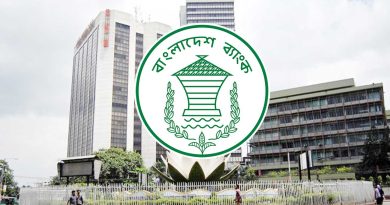The volume of lending to Cottage, Micro, Small, and Medium Enterprises (CMSMEs) fell significantly during the January–March quarter of FY2024-25 (Q4), according to the latest data from Bangladesh Bank (BB).
Loan disbursements to CMSMEs dropped by 9.97 percent year-on-year to Tk 478.13 billion in Q4, down from Tk 531.07 billion in the same period of FY2023-24. On a quarterly basis, lending contracted by an even sharper 23.60 percent compared to the October–December quarter of FY25.
At the end of March 2025, the outstanding CMSME loan portfolio stood at Tk 3.02 trillion, marginally lower (0.59 percent) than the same month a year earlier. CMSME loans accounted for 16.84 percent of total banking sector loans at that time.
Breakdown of CMSME financing in Q4 FY’25 shows:
- Private commercial banks: 73.70 percent of total lending
- State-owned banks: 18.15 percent
- Specialised banks: 2.47 percent
- Non-bank financial institutions (NBFIs): 4.17 percent
- Foreign banks: 1.50 percent
BB’s latest circular (March 2025) has set a mandatory target for banks and NBFIs to channel at least 27 percent of their total loan portfolio into CMSMEs by 2029. The circular also introduced measures to expand access:
- F-commerce and e-commerce entrepreneurs can now avail up to Tk 0.5 million under CMSME financing.
- A firm is now classified as woman-led if a woman holds at least 20 percent ownership and employs at least 51 percent women, lowering the previous 51 percent ownership requirement.
Commenting on the development, Dr. M. Masrur Reaz, Chairman of Policy Exchange of Bangladesh (PEB), said the decline in CMSME disbursement during Q4 “highlights the urgent need for targeted financial support, especially for small entrepreneurs.”
He stressed that while private banks dominate the sector’s financing, state-owned and specialised banks must step up to ensure broader access, particularly in rural and peri-urban areas.
Dr. Reaz also welcomed the policy revisions recognizing women entrepreneurs with lower ownership thresholds, terming it a “progressive step” that will help foster inclusivity.
CMSMEs represent nearly 90 percent of Bangladesh’s industrial units and employ about 80 percent of the industrial workforce, according to the Planning Division. Economists say strengthening this sector is critical for job creation, economic resilience, and youth empowerment, particularly amid the government’s focus on creating sustainable employment opportunities for educated young people.






